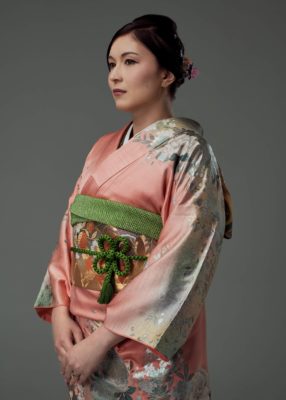 Language Program Coordinator, Marketing Representative & Student Counselor, M.Sc.
Language Program Coordinator, Marketing Representative & Student Counselor, M.Sc.
Research is truly a beautiful thing and it is a privilege to spend years on a project that is dear to us. So if you’re one of the lucky ones, and studying Japan – by all means, take advantage of any support you can get to immerse yourself in the culture, the air, the people by going there.
Ms. D’Orangeville spent 5 months doing fieldwork in Shinjuku, Tokyo, in 2013.
My research project was about subcultures communities in Tokyo, and how they had a role as a safe space of social rehabilitation for a lot of their members (I mostly worked with the lolita and fetish communities). Since I’m an anthropologist, I had to be there in person to immerse myself within the community I was studying, as an observer-participant, and also to conduct interviews. [The fellowship] allowed me to collect data, which was the core of my Ph.D. project, and to paint a more clear picture of what I wanted to focus on. Without the Japan Foundation fellowship, I wouldn’t have been able to continue my Ph.D. at all.
The end of the fellowship was the beginning of my professional life as a researcher. I have published a few articles, presented at countless conferences and started teaching as a lecturer (at Université de Sherbrooke, Université de Montréal and McGill University). My most memorable event was when I organized a symposium in 2016 at Université de Montréal, “Eyes on Popular Japan”, gathering Japan studies researchers from all over Montreal/Quebec, with guest speakers from Duke U (Anne Allison), Harvard (Tomiko Yoda), and CyberConnect2 (a videogame development studio).
Although the time she spent in Japan was brief, Ms. D’Orangeville remembers that period in her life with much fondness.
It is not one single memory, but a collection of moments: my interviewees taking me to their favourite stores or tea shops while telling me about themselves, and letting me in their lives for a moment; wearing gothic lolita to go to a “Masquerade” event; meeting Japanese researchers and listening to their dreams about making the world a fairer place; and so many more.
Her anthropological research is not Ms. D’Orangeville’s only Japan-related interest. She has been a Kendo practitioner since 2000.
I went to Russia in 2013 to participate in the World Combat Games, representing Canada in the Women’s division, as a Kendo athlete. I have obtained my Kendo 5th dan black belt in 2015, officially certifying me as an instructor. I am one of the main instructors at the McGill Kendo Club.
After her fellowship, Ms. D’Orangeville has had to make the heart-breaking decision to pause her Ph.D. due to personal reasons. Drawing from her experiences, she has some valuable advice for graduate students and researchers.
I would also like to encourage graduate students to seek help without hesitating, if needed, and to never judge themselves. The world is already harsh enough, and our internal voice should only be constructive.
I would like to thank once again the Japan Foundation for the wonderful and life-changing opportunity they have given me, and I would like to encourage all graduate students and researchers to apply for the fellowship. Research is truly a beautiful thing and it is a privilege to spend years on a project that is dear to us. So if you’re one of the lucky ones, and studying Japan – by all means, take advantage of any support you can get to immerse yourself in the culture, the air, the people by going there.
I would also like to encourage graduate students to seek help without hesitating, if needed, and to never judge themselves. The world is already harsh enough, and our internal voice should only be constructive. Be kind and open, just like you would be to your interviewees.

 Language Program Coordinator, Marketing Representative & Student Counselor, M.Sc.
Language Program Coordinator, Marketing Representative & Student Counselor, M.Sc.